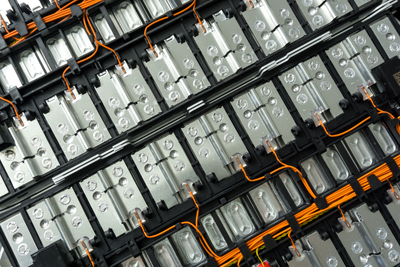The next phase of investment outlined in the Bipartisan Infrastructure Law aims to strengthen domestic battery manufacturing and supply chains.
The U.S. Department of Energy (DOE) unveiled a $3.5 billion initiative, funded by the Bipartisan Infrastructure Law, to advance domestic production of advanced batteries and related materials. This move is a crucial part of President Joe Biden's Investing in America agenda, aimed at bolstering the nation's competitiveness in the burgeoning clean energy market.
“Positioning the United States front and center to meet the growing demand for advanced batteries is how we boost our global competitiveness, maintain and create good-paying jobs, and strengthen our clean energy economy,” said Secretary of Energy Jennifer M. Granholm.
At the core of this initiative is the development of new and expanded facilities for processing critical minerals, manufacturing battery components, and producing battery cells and packs. These steps are vital for supporting future-oriented industries like renewable energy and EVs. The funding also aligns with the administration's broader goals of achieving a net-zero emissions economy by 2050 and ensuring EVs constitute half of all new light-duty vehicle sales by 2030.
Batteries play a pivotal role in transitioning to a clean energy economy, not only in reducing energy costs and greenhouse gas emissions for American families and businesses but also in enhancing national security and resilience. The demand for EVs and stationary storage is expected to exponentially increase the lithium battery market by the end of this decade, highlighting the necessity for the U.S. to invest in a robust, resilient battery supply chain.
This initiative represents the second phase of a broader $6 billion investment outlined in the Bipartisan Infrastructure Law. In the first phase, the DOE awarded 15 projects, catalyzing more than $5.8 billion in combined public and private investment. The current phase aims to further strengthen domestic battery manufacturing and supply chains, focusing on:
- Developing a competitive battery materials processing industry in the U.S.
- Expanding advanced battery manufacturing capabilities.
- Reducing dependency on foreign entities for critical minerals and battery materials.
- Enhancing domestic processing capacity for battery materials.
- Supporting underserved communities in line with the Justice40 Initiative.
- Creating workforce opportunities in low- and moderate-income communities.
The DOE is prioritizing not only lithium-based technologies but also next-generation technologies and battery chemistries. This includes expanding facilities for critical material processing and battery component manufacturing, which are expected to attract additional investments.
The program will update its focus areas every six months to keep pace with market and technology advancements. Concept papers for this funding opportunity are due by Jan. 9, 2024, with full applications required by March 19, 2024. The Office of Manufacturing and Energy Supply Chains (MESC) is responsible for overseeing the initiative.










Abby Andrews